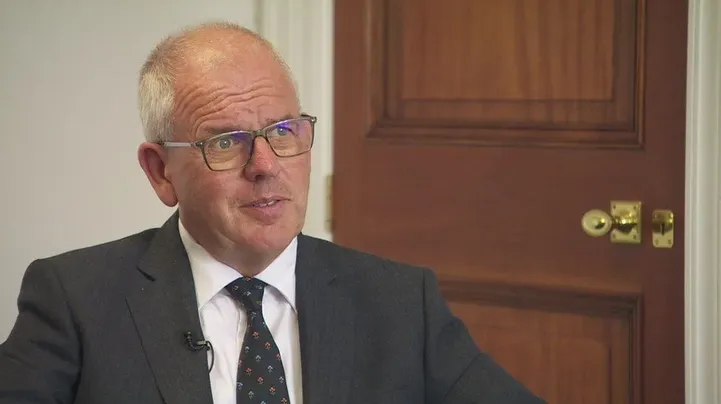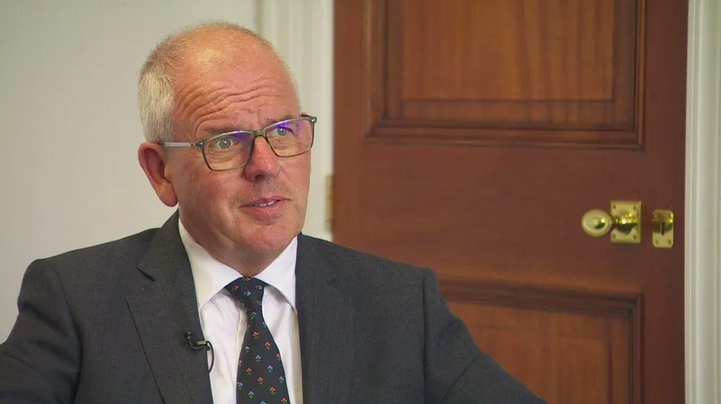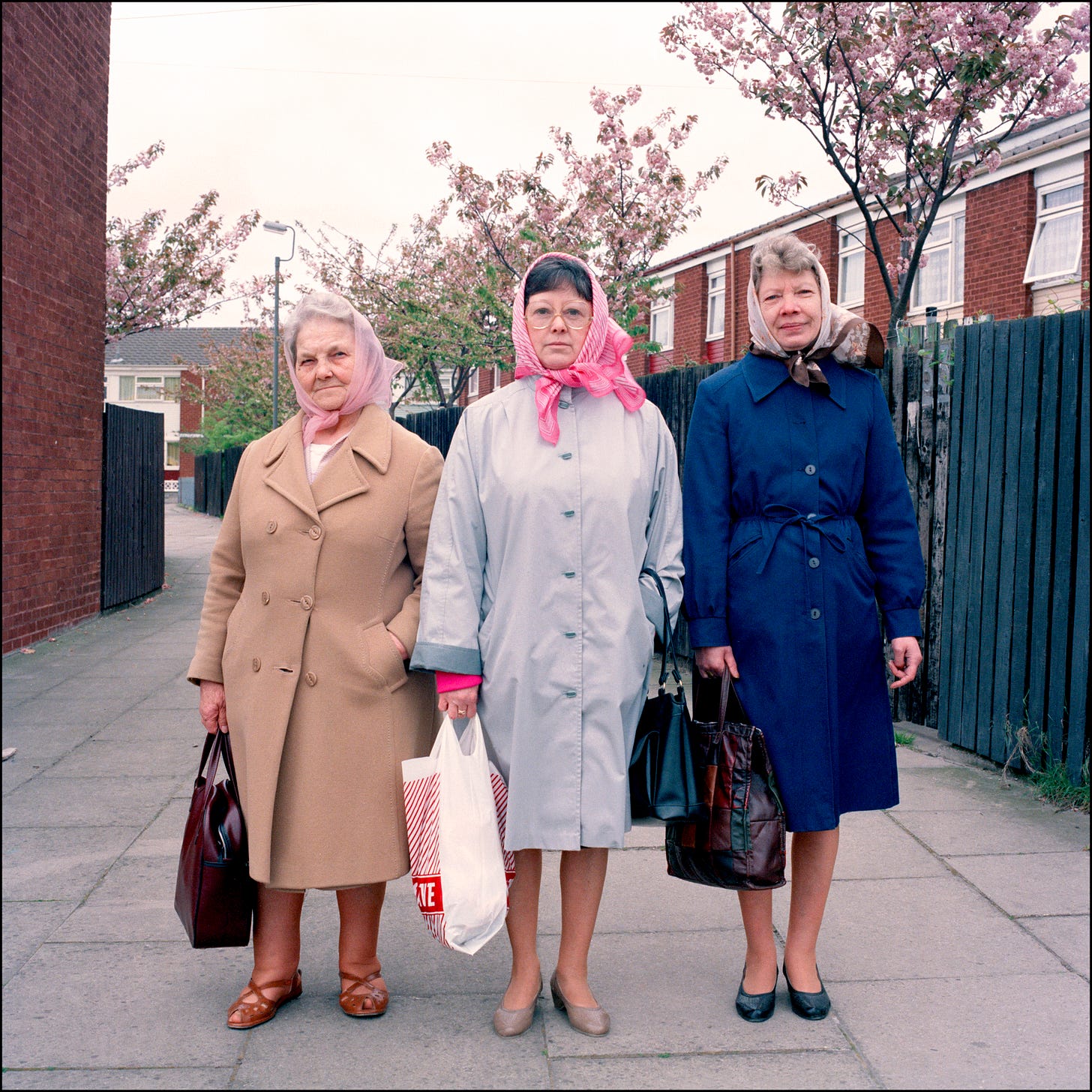A complete Whitehall takeover? Liverpool City Council commissioners expand their powers

Levelling Up secretary Greg Clark announces the inevitable – plus the rest of your weekly briefing
Dear readers — last week the inevitable happened. Whitehall ramped up its control over Liverpool City Council, expanding the powers of Mike Cunningham and his team of commissioners to cover finance, governance and recruitment (on top of its existing remit of property, regeneration and highways). It's an unprecedented move and, naturally, hasn’t been welcomed by all.
On Saturday, we published an investigation four months in the making. Mollie and Harry have worked tirelessly in that period looking into Gerard Woodhouse, the councillor and boss of the L6 Community Association, who seems to have made a habit of telling spurious and grossly-exaggerated tales of poverty in order to drum up media attention for his organisation. “It’s the only place — ever — that’s been on the One Show six times,” Woodhouse says. “To get on it once is an achievement. Six times, we’ve been on it.”
This is exactly why I pay my subscription to @liverpoolpost - proper investigative journalism that doesn't fail to challenge the powerful
— Simon Jones (@ariadneassoc) 4:12 PM ∙ Aug 21, 2022
The piece got a phenomenal response and was widely shared across Twitter. ”It is important for all of us not to send out false messages about the City. Things are tough enough without us seemingly exaggerating the problems to a national audience,” said Liberal Democrat leader on the council Richard Kemp.
Gerard Woodhouse tells horrifying stories about Liverpool - are they true? By @liverpoolpost
— Jordan Tyldesley (@PippyBing) 12:46 PM ∙ Aug 21, 2022
Fascinating long read.
To help us do more journalism like this, that holds local politicians to account, please do join us as a member now. You will get all our members-only editions and be able to comment under any Post story.
Last week we sent out two great stories to our members. On Tuesday we published a two-parter: Jack’s follow-up to his widely-shared deep-dive into why companies are leaving Liverpool and a piece by Mollie looking at the work of local photographer Rob Bremner, who shared some of his favourite photos.
On Thursday Jack spoke to Julian Buchanan, a probation officer turned drug specialist who witnessed first hand the ‘smack city’ heroin epidemic that swept parts of Liverpool in the 1980s. Both conventional wisdom and the city’s vehemently anti-drug Militant-run council favoured an abstinence led method of tackling the crisis, but gradually Buchanan came to disagree. He soon found himself at the forefront of a pioneering movement to fight heroin with heroin.
Pieces like the Woodhouse investigation are time-consuming and expensive. They require long hours, meticulous fact-checking and often legal advice (especially with Woodhouse threatening to report us to the police). We do them though, because scrutinising local figures — even beloved ones who do a lot of good for their communities — matters. If you know someone who you think would enjoy the work we produce, do consider sending on this email and spreading the word about The Post.
This week’s weather

This week’s weather forecast is sourced from the Met Office and it’s for Liverpool.
The big story: A complete Whitehall takeover? Liverpool City Council commissioners expand their powers
Top line: Levelling Up secretary Greg Clark has ordered a huge expansion of the powers wielded by the commissioners at Liverpool City Council. All financial, governance and recruitment powers will be taken over, after a new report by the commissioners highlighted “serious shortcomings” at the council.
Another poor report: The commissioners were originally installed to oversee the council's property, regeneration and highways departments last summer following Max Caller’s highly critical inspection of the same departments. However, the latest report is again damning of the “turbulent” council as a whole, singling out financial management and senior leadership. It also criticises the speed of progress in making improvements at the Cunard administration.
A “strategic advisory panel” will be formed to set a roadmap for the council beyond government intervention. It will be chaired by Metro Mayor Steve Rotheram, who will be assisted by former chief executive of Manchester City Council Sir Howard Bernstein and former leader of Leeds City Council, Baroness Judith Blake. They will be joined by a nominated business leader.
Too much power? The expansion is effectively a full takeover by Whitehall. How money is spent and who is hired or fired now falls within its remit. On Twitter, Mayor Joanne Anderson argued that huge government cuts to local authorities (“We have lost £465 million in funding since this government came to power in 2010”) can be blamed for many of the shortcomings.
One very well-connected source outside of the council told The Post last month that there was a “clear political element” to the intervention, and those fears will only be heightened now.
Concerns — expressed by various councillors — are that the commissioners are now effectively replacing the role of the elected officials. Leader of Liverpool's Liberal Democrat group Richard Kemp said they would be “tak[ing] over control of Liverpool City Council from Liverpool Labour councillors”. Rotheram disagreed:
- “TO BE CLEAR,” tweeted the metro mayor in emphatic capital letters. “The panel isn't being asked to take over the council. We're here to support.”

Context: The writing has been on the wall since the energy bill fiasco, where the failure to renew a contract in May cost taxpayers upwards of £16 million. Finance director Mel Creighton and chief executive Tony Reeves both quit in the aftermath and it was widely taken as evidence that significant enough changes had not been made since the Caller inspection. As The Post reported last month, the expected expansion of the commissioners' powers is thought to be a factor in Reeves' decision to step down.
Liberal democrat councillor Kris Brown doesn’t buy the Labour argument of Tory infiltration, but also notes that Liverpool shouldn’t see the commissioners as a “golden bullet”. It’s an understandable point: the commissioners aren’t going to be in Liverpool forever. Fears are that by handing them total control, the responsibility of democratically-elected members to also undertake a journey of improvement is diminished.
Brown believes it is vital for council presence (including opposition leaders) to be at the same table as the panel. He said:
- “They have to be savvy and make sure they play a role. They can’t take the defeatist attitude that we’ve lost control so let's twiddle our thumbs and swivel on our chairs.”
Light at the end of the tunnel? Brown sees a positive to the mayhem. “Take the contract situation,” he says. “Yes, we’ve had contracts that haven’t been best value, but if you were to check within neighbouring authorities, I guarantee you’d find similar cases. But they aren’t under the same scrutiny.” His belief is that all the eyes on the council should force change. “Once you’ve hit rock bottom, the only way is up in a sense,” he says. How quickly that change occurs is another matter.
Your Post briefing
🏞️ Latest designs for a public park at Peel L&P’s Liverpool Waters have been released by the company. The plans still need approval from Liverpool City Council, but if it goes ahead “Central Park” as it has been dubbed would become one of the largest green spaces in the city, spanning 1.9 hectares (4.7 acres). The latest designs haven’t been universally well-received though, with some believing the buildings visible in the background represent a scaling-back of earlier plans. On Twitter, Liverpolitan wrote: “Has Manchester-based Peel’s plan for Liverpool Waters become a metaphor for our city’s shrinking aspirations?”
👮 A police watchdog audit has rated Merseyside Police “outstanding” at disrupting criminal gangs. The force was also rated as “good” by the Inspectorate in nine other areas, but got a less impressive “adequate” score for supporting victims. The inspection took place in May 2021, with a follow-up inspection in May this year to see if improvements had been made. According to Matt Parr, a spokesperson for the police watchdog, the impact of crime in Merseyside has been reduced by using innovative methods to disrupt gangs bringing in drugs from other areas. He also praised the force for using public consultations to decide how to use seized money to best benefit local communities.
📷 The National Trust has revealed some of a vast archive of photographs by Liverpool portrait photographer Edward Chambre Hardman that it has been “in a race against time” to preserve. Hardman’s collection — and his home — were passed to the trust in 2003, who thought at the time that the archive contained roughly 140,000 items. They now believe the total to be double that. It is said to be the only known 20th Century collection where the entire output of a photographer has been preserved intact. The collection spans five decades and includes a vast range of subjects, from pictures of 1950s and 60s celebrities and Liverpool's high society, to British landscapes and striking shots of post-war Liverpool. Most of the collection has been stored at Liverpool Record Office.
⛴️ The North West's maritime sector will be recruiting a 7,000-person “green team” by 2030, mostly comprised of young people. The move from Maritime UK is part of a national push to fill 64,000 roles dedicated to achieving net zero, with coastal communities in Merseyside particularly likely to benefit. A piece on the ITV website reports the roles will be well paid, with remuneration 30% higher than the UK benchmark. Technology, engineering, and science enthusiasts are wanted especially, in a sector that is becoming increasingly digitalised.
Home of the week

This three bedroom cottage in Norris Green needs modernising, but it has lovely wooden floorboards and a luscious garden. It’s on the market for £115,000.
Post Picks
🎭 Famed theatre group ‘The Pantaloons’ take on one of Shakespeare’s best-loved comedies, Much Ado About Nothing, at Speke Hall on Wednesday. It’s an outdoor display and suitable for all ages.
🥘 Take a vegan walking tour of independent eateries in Liverpool on Thursday, including six different taster dishes. You don’t have to be a vegan to partake, but a sizable appetite is advised! Tickets are £65 and available here.
🎨 There’s an eclectic coming together of activities at the Bombed Out Church on Friday: painting and 90s R&B. Grab a drink, a bite and a brush and paint the Notorious B.I.G., one of the all time great rappers. You can also paint someone else (we think). Book here.
🚶♀️ On Saturday, take a two and a half hour walk across Hilbre Island, named after the Anglo-Saxon Saint Hildeburgh. The island was seen as a place of pilgrimage after the 'miracle of the sands' in the 12th century and the description here makes it sound similarly spiritual these days: “the island's mystique both slows time and speeds it as you open all your senses.” More information here.
Our favourite reads
“In 2018-19, social services assessed 16,132 children in Merseyside County, of which 546 were deemed to be either active members of a gang, at risk of joining one, or at risk of being a victim of gang-related violence,” states this fascinating piece in The Conversation by John Moores University lecturer Robert Hesketh, which examines the reasons young people join gangs. Hesketh describes himself as someone who has seen “both sides of the fence,” having lived on a socially-excluded and poverty-stricken Knowsley housing estate and having worked as an academic focusing on youth and gang crime. The article is based on 44 interviews conducted by Hesketh, half involved in street gangs and half abstaining entirely.
This 2011 long-read in The Guardian tells the surprising story of how “Children of the Ghetto” (a song made famous in the US by Phil Bailey of Earth, Wind and Fire, Courtney Pine and Mary J Blige), originated in L8. The song was at the heart of a musical trilogy by Liverpool band The Real Thing that Chris and Eddy Amoo, the brothers at the band’s core, intended as a eulogy to their postcode. During the Toxteth riots, the song was broadcast “everywhere, including out of my own bedroom windows in Catharine Street at the edge of the riot zone,” writes author Ed Vulliamy.
In this insightful piece in The Critical Friend (the newsletter of the South Liverpool Debating Society), author Ming-ko draws upon his experiences as a social worker to tell the story of a family he came across early in his career. He touches on the importance of understanding the perpetrator, even in cases where they are clearly an unpleasant, or even violent person, and it might seem easier not to do so. He writes: “To humanise the perpetrator is to expose ourselves to the full scope of good and bad in society and even in the lives of those we love.”
This review of “Soulweight”, an exhibition by record label Dreamchord at Output gallery, is beautifully written, as is typical of The White Pube. Here’s an extract: “i feel dumb and mortal and impatient for seeing the work and immediately thinking ‘I want it on a t-shirt’ instead of letting the soundwork wash over me, instead of handling the objects on the scale and noting how things softly change — but dreamchord are in fact selling t-shirts, and i was there all night so the aesthetic experience got to me anyway.” See the exhibition here.
Photo of the week

Letters from readers
Your original article really struck a chord as it has never made sense to me that there’s a huge number of multi-storey, mostly one bedroom, flats being built in the city and no new jobs to bring people in to fill them. (‘Can the company exodus from Liverpool be stopped?’), Paula Burnell
An interesting read. My dad was a copper in Liverpool at the time, and he’s always said that legalisation and regulation is the only good solution to the problems caused by drugs. (‘How do you tackle a heroin crisis? By prescribing heroin’), Chris McGarvie

Comments
Latest
‘Cutthroats and sell outs’: An editor’s note about Laurence Westgaph’s threats
Ian Byrne: Why the country — not just Liverpool — needs the Hillsborough Law
The ‘charisma bypass’: Why Liverpool’s leaders are so forgettable
The Mersey’s clean-up cost £8 billion. So why is it still so dirty?
A complete Whitehall takeover? Liverpool City Council commissioners expand their powers
Levelling Up secretary Greg Clark announces the inevitable – plus the rest of your weekly briefing